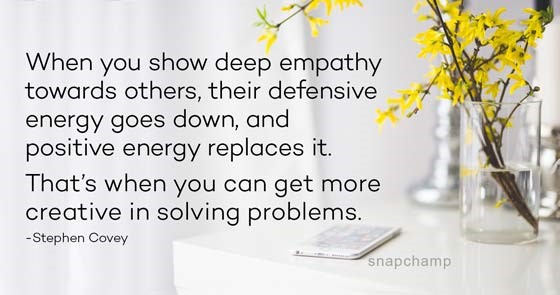If you’re someone who Is easily put-off, feels you’re being criticized, overwhelmed or picked-on at work, maybe it’s time for you to learn how to not take things so personally in the workplace. To be blunt, it’s time to grow a thicker skin and grow up! Put your big girl pants on!
I’ve seen this issue surface with coaching clients many times, and once you realize how to have a thicker skin, the benefits are huge. When you can be pragmatic and less emotional, you will be seen as more of a professional, as someone who is tougher in the workplace and capable of playing with the big dogs.
A certain toughness will make you less vulnerable to the constant changes that can simply be part of everyday office politics and workplace changes. For example, if you’re used to doing a project a certain way and parameters change, there’s less stress on you as the individual if you can roll with the changes.
Taking things too personally also takes a toll on your productivity. For example, you are more creative and productive when you take things less personally. The reality is, it takes mental and sometimes physical energy just to get through the day when you take things too personally.
And, the risks are too great, when you outwardly display your inability to put your big girl pants on. When you respond to perceived slights and show that you’ve taken something personally, you’re seen as someone who is defensive at best and worst case, you’re perceived as a whiner. Unfortunately, you can be seen as someone who is not willing and ready to grow in your professional development.
Bottom line, you live in intense fear and stress, maybe to the point of paranoia, when you take things personally in the workplace. To help you learn how to deflect these unnecessary and sometimes harmful reactions in the workplace, remember some of these important realizations in your everyday dealings at work:
- People want what they want and you may be an obstacle to what they want — this is not about you, you may simply be getting in the way
- Workplace is the business of business and getting a good result — if you’re there to do a job and you’re not performing or producing, you’re obstructing business
- It’s everywhere — you’re not going to move to a new position, a new job, a new state, a new country and find a place that’s different
When taking things personally, a common first instinct is to get a new job. You need to manage that response and simply learn to own your behaviors and take things less personally. I’m here to tell you this isn’t easy — we are who we are, flawed and growing all the time.
For example, I had a coaching client come to me, because she felt persecuted at work. She reported crying about everything and left in tears every day. One of the first things she said was, “I’m constantly being criticized by my boss.” Her issues showed up right away in her interactions with me, making this criticism seem justified.
Unfortunately, she was late for coaching calls and didn’t complete her assessments. She would agree to everything I suggested, then she didn’t have it done. These were the exact same things she was hearing from her boss. She was always late, didn’t get work done, and always had an excuse. Yes, she would always agree and say, “Yes, I can get that done.”
When we uncovered what was happening, I think it was one of the longest pregnant pauses I’ve ever experienced. She said, “You’re right, I’m taking things personally because these are personal problems.” So, if this is you or you have some growing up to do, you’re not a bad person, just put your big girl pants on and move on!
Look at everything from a very pragmatic, business perspective. Ask yourself, what will it take to do this? If you’re making errors, do you need to slow down? Maybe you need more technical skills to sharpen your performance. Maybe there are areas where you actually need to say, okay fine, take the next step and don’t think about it too much. Sometimes, it simply is what it is.
If you are struggling to have a more professional focus at work and know you need to take challenges less personally, coaching may be your answer. Call Kay at 513-561-4288 or email kay@highheeledsuccess.com.

